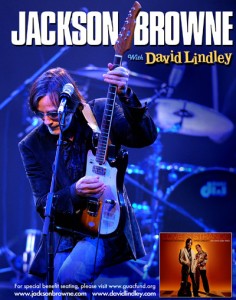I recently read an an interesting comparison between two dominant strands of how we approach reading a book, particularly for reviewing — the journalistic approach and the literary criticism approach. While I don’t necessarily agree with all the observations, it does fairly define those approaches and, as this review demonstrates, I find myself largely in the journalistic view.
 Why is that? Because the journalistic approach is based on the individual reader’s response to a book. And that directly influences my view of Richard Powers’ most recent novel, Generosity: An Enhancement. Put simply, I don’t care for metafiction. So, it’s not surprising that the fact it appears in the first paragraph affects my view of the book, although I can’t honestly say to what extent.
Why is that? Because the journalistic approach is based on the individual reader’s response to a book. And that directly influences my view of Richard Powers’ most recent novel, Generosity: An Enhancement. Put simply, I don’t care for metafiction. So, it’s not surprising that the fact it appears in the first paragraph affects my view of the book, although I can’t honestly say to what extent.
Granted, the book is not full of passages telling you this is, in part, a story about someone writing a story. Yet the device is used enough to distract me and, more importantly, undercut the more interesting social issues the book presents. But for the metafictional elements, I have fairly high praise for Generosity, which made a number of “best of” lists when initially released last year and is now out in a trade paper edition.
Powers uses a two-track approach to the main story. (Or is it? Is metafiction about the story you think you’re reading or the statements and suggestions of the fictional (?) author writing the fictional story?) One track is built around Russell Stone, a writer who basically quit writing when he learned how his first published articles affected the people who were the subjects. He now lives in a small Chicago apartment, editing the stories submitted for the entirely subscriber-generated content of a self-improvement magazine and, as the novel opens, is beginning a job teaching a creative nonfiction night class at a small nondescript college in downtown Chicago. Among his students is Thassadit Amzwar, an Algerian Berber refugee from the county’s civil wars and political unrest. Despite the strife that marked her life, Amzwar seems immeasurably happy, ebullient to the point she even has a positive effect on her fellow students and people she encounters on the street. Enthralled by her disposition, Stone becomes concerned whether she has hypomania, one aspect of bipolar disorder, or if she is the rare hyperthermic, a person who is always happy and positive. He even consults a clinical psychologist with the school’s counseling center, Candace Weld, who bears a striking resemblance to the lost love of Stone’s life and also becomes drawn in by Amzwar’s ubiquitous euphoria.
The other track centers on Tonia Schiff, the host of a cable television science show, who is preparing a episode about the potential benefits and ramifications of genomics and genetic engineering. The main subject of the program is Thomas Kurton, whose biotech companies are seeking ways to improve life through genetic engineering. When the two tracks cross, testing done on Amzwar by Kurton’s company gives rise to a belief that the potential exists to create a “happiness gene” based on her genetic structure. Once Amzwar’s identity leaks out after the publication of the journal article on the testing, her life changes dramatically.
Akin to how Powers’ National Book Award-winning The Echo Maker examined aspects of neuropsychology, Generosity considers the implications of programming the genes of fetuses, creating drugs tailor-made for an individual’s genetic code or extending life far beyond today’s life expectancies — and the profits to be made from patenting genetic information. Kurton see this as creating a wonderful new world. Stone and Schiff are more leery, In fact, after trying to grasp the journal article, Stone concludes:
Homo sapiens has already divided itself, if not into the Eloi and the Morlocks, then into demigods and dispossessed, those who can tame living chemistry and those who are mere downstream products. A tiny elite is assembling knowledge more magical than anything in Futopia, … learning how a million proteins interact to assemble body and soul. Meanwhile, Stone and his 99.9 percent of the race can only sit by, helplessly illiterate, simply praying that the story will spare them.
Powers also takes Generosity beyond the ethical and social issues of the concept that happiness is simply a function of genetics. The characters also confront the more basic questions of how we define happiness or contentment, how we achieve — or lose — it, and how each of us views our lives and our world. As a result, it is not as deep an exploration into the science and tends to be more character driven than The Echo Maker.
Powers does have the ability to quickly capture characters. For example, saying one of the students in Stone’s class is “a small, hard woman who must run with both wolves and scissors” does as much to establish that character as a couple paragraphs of description. At the same time, the main characters don’t seem to be plumbed too much. Weld, for example, never really feels fully fleshed out and rarely comes across as much more than a convenient bridge between Stone’s world and Kurton’s. Moreover, every time the omniscient author interjects himself and reminds us the characters are his creation, their development and our ability to invest in them is undermined.
Setting aside my admitted distaste for metafiction, Generosity is more engaging than The Echo Maker. Particularly with its flaws, that doesn’t make it a national award winning book. But if all we read were books that won awards, we would miss a lot of interesting works. Even for readers who may have my predilection toward metafiction, the flaws in Generosity are offset by the book’s ideas and the way Powers approaches them. As such, it not only is worth reading, it may be a more accessible introduction to his style and approach for newcomers to his work.
It’s never too late to overprepare.
Richard Powers, Generosity: An Enhancement
 While Browne is world famous and has nearly a dozen platinum and gold record albums to his credit, Lindley always has been far too overlooked outside the music industry. I’d always heard he was a master of virtually every stringed instrument he picks up — and he proved that Saturday night. Roughly the first hour of the show was Browne and Lindley (or Lindley solo for two songs) playing acoustic. They opened with tunes from Warren Zevon (“Seminole Bingo”) and Bruce Springsteen (“Brothers Under the Bridge”) and produced what may be the best version of Browne’s “For Everyman” I’ve heard. Lindley’s use of an oud gave “Looking East” a wonderful slant.
While Browne is world famous and has nearly a dozen platinum and gold record albums to his credit, Lindley always has been far too overlooked outside the music industry. I’d always heard he was a master of virtually every stringed instrument he picks up — and he proved that Saturday night. Roughly the first hour of the show was Browne and Lindley (or Lindley solo for two songs) playing acoustic. They opened with tunes from Warren Zevon (“Seminole Bingo”) and Bruce Springsteen (“Brothers Under the Bridge”) and produced what may be the best version of Browne’s “For Everyman” I’ve heard. Lindley’s use of an oud gave “Looking East” a wonderful slant. Evidently the law enforcement training sessions at the FBI Academy
Evidently the law enforcement training sessions at the FBI Academy 







